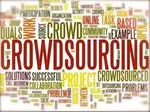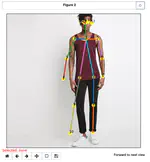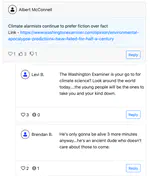Hi!
I am a fifth-year Ph.D. candidate in the Department of Computer Science at Virginia Tech, focusing on Human-AI Collaboration. I am advised by Dr. Kurt Luther in the Crowd Intelligence Lab. I was a Software Engineer at Microsoft before starting my PhD.
My research focuses on designing, prototyping, and evaluating proactive and transparent AI agents that scale up sensemaking, problem-solving, and creative tasks in a group context. In my PhD, I have published papers at top-tier HCI conferences like CHI, CSCW, DIS, and Collective Intelligence.
My research explores the evolving roles of AI in human–AI collaboration: (1) as a tool or personal assistant, supporting technical skill development, collaboration, and augmenting real-world tasks. (2) as a teammate, where AI takes on a more proactive and interdependent role. I have developed LLM-powered systems such as a Slack bot that supports leadership behaviors and deployed proactive generative AI agents that act as a facilitator or peer. (3) as an agentic collaborator, capable of autonomously completing parts of a task while remaining transparent and adaptive.
In a second line of work, I built expert-led crowdsourcing systems where experts coordinate and verify work from trained crowdworkers. This scales effort while keeping human judgment. I plan to apply these insights to guide trustworthy and collaborative AI agents—letting AI handle peripheral tasks while humans stay in charge of the core decision-making.
I am on the 2025-26 job market and seeking applied researcher and research scientist positions.
Publications
-
A. Mukhopadhyay, K. Salubre, S. Mehrotra, H. Javed, K. Akash. 2026. Exploring the Impact of Proactive Generative AI Agent Roles in Time-Sensitive Collaborative Problem-Solving Tasks. (Accepted at CHI 2026)
- Created functional technology probes of generative AI agents in facilitator and peer roles for group problem-solving tasks.
- Found that the peer agent occasionally enhanced problem-solving by offering timely hints and memory support, though it also disrupted flow and created over-reliance. In comparison, the facilitator agent provided light scaffolding but had a limited impact on outcomes.
-
A. Mukhopadhyay, K. Luther. 2025. OSINT Clinic: Co-designing AI-Augmented Collaborative OSINT Investigations for Vulnerability Assessment. CHI Conference on Human Factors in Computing Systems (CHI ’25), April 26-May 1, 2025, Yokohama, Japan. ACM, New York, NY, USA, 22 pages. (CHI 2025)
- Introduced an OSINT clinic where students engage in real-world investigations, developing technical and collaborative skills.
- Evaluated the impact of LLMs on skill development, team collaboration, and leadership, and real-world cybersecurity vulnerability assessments through a two-semester longitudinal study.
-
A. Mukhopadhyay, S. Venkatagiri, K. Luther. 2024. OSINT Research Studios: A Flexible Crowdsourcing Framework to Scale Up Open Source Intelligence Investigations. Proceedings of the ACM on Human-Computer Interaction 8.CSCW1 (2024): 1-38. (CSCW 2024)
- Introduced OSINT Research Studios (ORS), a framework enabling collaboration between experts and trained novices for OSINT investigations.
- Demonstrated the system's ability to structure investigations into macrotasks and support high-quality, ethical outcomes.
-
S. Venkatagiri, A. Mukhopadhyay, K. Luther. 2023. CoSINT: Designing a Collaborative Capture the Flag Competition to Investigate Misinformation. Proceedings of the 2023 ACM Designing Interactive Systems Conference (DIS '23). Association for Computing Machinery, New York, NY, USA, 2551–2572. (DIS 2023)
- Introduced collaborative capture-the-flag competitions (CoCTFs) as a method to enhance crowdsourced investigations of misinformation.
- CoSINT, the platform implementation, merged competition and collaboration through structured workflows, gamified incentives, and knowledge sharing.
Recent Workshop Papers and Posters
-
A. Mukhopadhyay, K. Luther, K. Salubre, S. Mehrotra, H. Javed, T. Misu, K. Akash. Towards Understanding The Impact of Generative AI Agent Roles In Collaborative Problem-Solving Tasks. In Workshop on Augmenting Collaborative Problem-Solving: Exploring the Design and Use of GenAI for Groupwork. (CSCW 2025)
-
A. Mukhopadhyay. Scaling Open Source Intelligence Investigations Through Human-AI Collaboration and Crowdsourcing. In Doctoral Consortium of the ACM Collective Intelligence Conference 2025. (CI 2025)
-
A. Mukhopadhyay and K. Luther. Tailoring Generative AI to Augment Creative Leadership in Capture-The-Flag Development. In Workshop on Tools for Thought: Research and Design for Understanding, Protecting, and Augmenting Human Cognition with Generative AI. (CHI 2025)
-
S. Marks, F. Moraes, A. Mukhopadhyay, and K. Luther. IntelBuddy: Designing an AI Agent to Perform OSINT Discovery and Verification Tasks. Poster presented at Academic Symposium on Cybersecurity, Emerging Networks, and Technologies (ASCENT) 2025, Virginia Tech, Blacksburg.
Here's my resumé
- AI Agents
- Human-AI Collaboration
- Crowdsourcing
- Cybersecurity
- Open Source Intelligence (OSINT)
-
Ph.D. in Computer Science, 2021 - Present
Virginia Tech
-
M.S. in Computer Science, 2021 - 2023
Virginia Tech
-
Bachelor of Engineering in Computer Science and Engineering, 2014 - 2018
Jadavpur University, India
Skills
Agentic Workflows, LLM APIs, Django, REST APIs, SQLServer, PostgreSQL, DynamoDB, React
MCP Framework, PyTorch, TensorFlow, OpenAI Assistants, Azure Web Services, Llama, LangChain, Hugging Face Transformers, Whisper, Scikit-learn, CUDA, Pandas, NumPy
Co-design, Design-based Research, Scenario-based Design, Research through Design, Contextual Inquiry, Human-Centered Design
Journey Mapping, Contextual Inquiry and Analysis, Wireframing, Rapid Prototyping, Survey Design, Semi-structured Interview, Thematic Analysis
Experience
- Research Assistant at the Crowd Intelligence Lab with Dr. Kurt Luther.
- Relevant Coursework - Human-AI Interaction, Data Analytics, Deep Learning, Usability Engineering, Computer Supported Collaborative
Responsibilities included:
- Investigated the impact of proactive generative AI agent roles on group performance and collaboration by designing and implementing two probes—a facilitator agent providing summaries and proposing structures, and a peer agent contributing ideas and answering queries.
- Led a within-subjects study with 24 participants across 6 co-located teams to compare agent roles and presented design considerations for proactive generative AI in group collaboration.
Responsibilities included:
- Lead a generative research study on trust in Copilot-driven AI experiences
- Develop a scenario-based study design on the effectiveness, preferred methods of interaction, and potential issues in three information worker scenarios
- Present recommendations for system relevance, transparency, human control, and data privacy
Responsibilities included:
- Explore 3D map interactions in Mixed Reality through a human-centered approach
- Identify challenges, brainstorm ideas, prototype and evaluate intuitive navigation interactions for Hololens 2
Responsibilities included:
- Full stack development using C#, React, Python
- Improvement of service reliability and API performance
- Proof of concept for auto-tagging feature in SharePoint
Projects
Human-AI Interaction Course project 2021
We design a notebook to allow the user to upload an image of a person and modify the pose of that person by dragging and dropping body joints.
We use CoCosNet-v2 to synthesize the image of the reposed person. We use OpenPose to extract the pose of the person. We use IPython widgets to enable interaction with the extracted pose.
Contact
- anirban@vt.edu
- 15404493700
- Blacksburg, VA 24060
- Connect with me on LinkedIn




